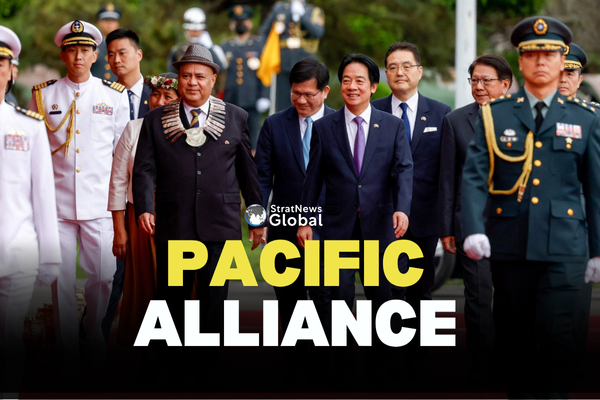Tuvalu’s Prime Minister Feleti Teo reaffirmed his country’s commitment to maintaining strong diplomatic relations with Taiwan during an official visit to Taipei on Tuesday. Speaking alongside Taiwan’s President Lai Ching-te, Teo described the partnership as one built on “shared democratic values, mutual trust and unwavering cooperation.”
Tuvalu is one of only 12 nations that recognise Taiwan diplomatically, three of which are located in the Pacific. The visit comes amid intensified competition between China and the United States for influence in the region, with Beijing seeking to persuade Taiwan’s remaining allies to switch recognition.
A Relationship That Has Withstood Time
At a welcome ceremony outside Taiwan’s presidential office, Teo praised the 46-year friendship between the two nations, calling it “durable and sustainable.” During the visit, Tuvalu plans to sign its first treaty with Taiwan to help secure formal recognition of its perpetual statehood. The agreement will also protect the country’s valuable fishing grounds as rising sea levels threaten to submerge its territory.
Tuvalu’s recent election drew attention from Beijing after one candidate suggested reviewing ties with Taiwan, but Teo’s statements signalled a clear continuation of the existing relationship.
Facing Shared Challenges Together
President Lai said Teo’s visit underscores the strong bond between the two countries. “I am confident that through Prime Minister Teo’s visit, the partnership between our two countries will be further advanced,” Lai said. “Together, we will face the challenges posed by geopolitics and climate change.”
Taiwan has been a key development partner for Tuvalu, helping fund coastal defences and infrastructure projects. Alongside Australia, the United States and Japan, Taiwan also supported the construction of Tuvalu’s first subsea telecommunications cable, connecting the island nation to the global network.
With a population of around 11,000 spread across nine low-lying atolls, Tuvalu remains highly vulnerable to rising sea levels. Experts predict that by 2050, half of its main town could be underwater, making continued international partnerships essential for its survival.
(with inputs from Reuters)





